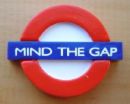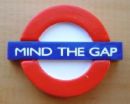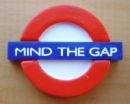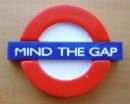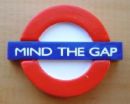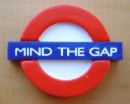 Pleasantly Brief for a Magnum Opus–Opens the Door to the Future, May 30, 2007
Pleasantly Brief for a Magnum Opus–Opens the Door to the Future, May 30, 2007
Paul Hawken
Edit of 16 Apr 08 to add five more links.
I ordered this book last December after hearing Paul Hawkin brief on the World Index of Social and Environmental Responsibility (WISER), and before receiving the book, heard him speak again in Seattle on how governments and corporations are stealing the future (our challenge) while the Internet and WISER specifically are bringing all of together to put down the destructive minorities–he called this the Earth's immune system, and has a chapter in the book about it.
This book could have been a 750-page “big book” but the author has made it blessedly concise. You can join WISER and see everything else there.
He tells us that Lincoln was the first President to sign legislation to protect nature, and Theodore Roosevelt the first to create a wildlife preserve.
He puts the creationists down while providing a marvelous review of the path from Emerson to Thoreau to Gandhi to Martin Luther King. Truly a wonderful tour of the horizons of our pioneers for good intentions and respect for nature.
He directly connects environmental advocacy with advocacy for social justice.
He considers the 1990's rather than the 1970's to have been our age of awakening, and points out that today we have 1000 times more people than 7,000 years ago, and each person is using 100 to 1000 times more energy than their ancestors.
He teaches us that the Luddites have been terribly mis-represented; that they were not against technology, but rather in favor of full employment and dignity for every person. Lionel Tiger, in Manufacture of Evil: Ethics, Evolution, and the Industrial System, makes the large case against the industrial era for destroying kinship, trust, and human dignity, See my list on transpartisan books for the healing works.
He does not repeat anything from Natural Capitalism: Creating the Next Industrial Revolution or The Ecology of Commerce. This is a completely new work, and one could call it a “call to action” for all of us, as well as directions for joining the largest movement on the planet, all for one and one for all (WISER).
We learn that Rockefeller treated renewable energy as a competitor and was ruthless against it. I still cannot comprehend why the CEO of Exxon is oblivious to the value of going green with all his ill-gotten profits from the past few years of insanity. Exxon is portrayed in this book as the greatest of all miscreants, spending tens of millions each year to bury the truth and spawn lies. I know for a fact that the CEO of Exxon is aware of all the knowledge available to him, and has chosen to isolate himself from reality and stick to the traditions of the past. He will go down with his ship when we all start boycotting Exxon as I have begun to do.
The very few repeated themes from past works focus on how business had always created value but never been held accountable for the true cost of what they produce, since they are so clever as well as duplicitous in legalizing the externalization of most of their costs (not talking small business here, just the 10% mega-business element that scorns humanity).
The author calls for third party objective science that is neither politicized nor fanaticized by religious zealots. I agree, and my several books tell us how to do this, I will mention only two: The New Craft of Intelligence: Personal, Public, & Political–Citizen's Action Handbook for Fighting Terrorism, Genocide, Disease, Toxic Bombs, & Corruption and THE SMART NATION ACT: Public Intelligence in the Public Interest.
The author discusses the direct relationship between climate change and poverty, disease, and environmental degradation, the top three high-level threats that the secret intelligence community refuses to focus on.
The author contributes to the growing literature on how the USA has been an aggressor Nation, and in the case of Mexico, specifically provoked the war that led to the Treaty of Guadalupe–Mexico has fought back asymmetrically ever since, and it can be safely said that they have taken back their lost land while multiple Administrations have condoned illegal immigration.
We learn that Rosa Parks was trained in civil disobedience prior to her momentous stand. We are reminded by the author that Thoreau said that if just one man withdraws his support from an unjust government, it is the beginning of a cycle that will grow.
The author gives us an absolutely superb chapter on the deep knowledge of indigenous peoples, and one can but weep at the genocide, not just of peoples, as I had understood it up to know, but of hundreds of years of acquired knowledge about how to live within nature. He points out that languages, like species, are disappearing, and every lost language, like every lost species, sharply reduces our access to useful knowledge.
I could go on, but the book is a real gem, and merits a complete and careful reading. The author ends with four time frames, the timeframes of commerce, of culture, of governance, and of nature, and tells us about blessed unrest as the Nation's immune system. If Silent Spring was the first call to action, this book is not just a renewed call to action, but a roadmap as well.
A 112 page annex on Wiser Earth is essential supporting documentation.
See also:
A Power Governments Cannot Suppress
The Unconquerable World: Power, Nonviolence, and the Will of the People
The Battle for the Soul of Capitalism
Running On Empty: How The Democratic and Republican Parties Are Bankrupting Our Future and What Americans Can Do About It
Collective Intelligence: Creating a Prosperous World at Peace


